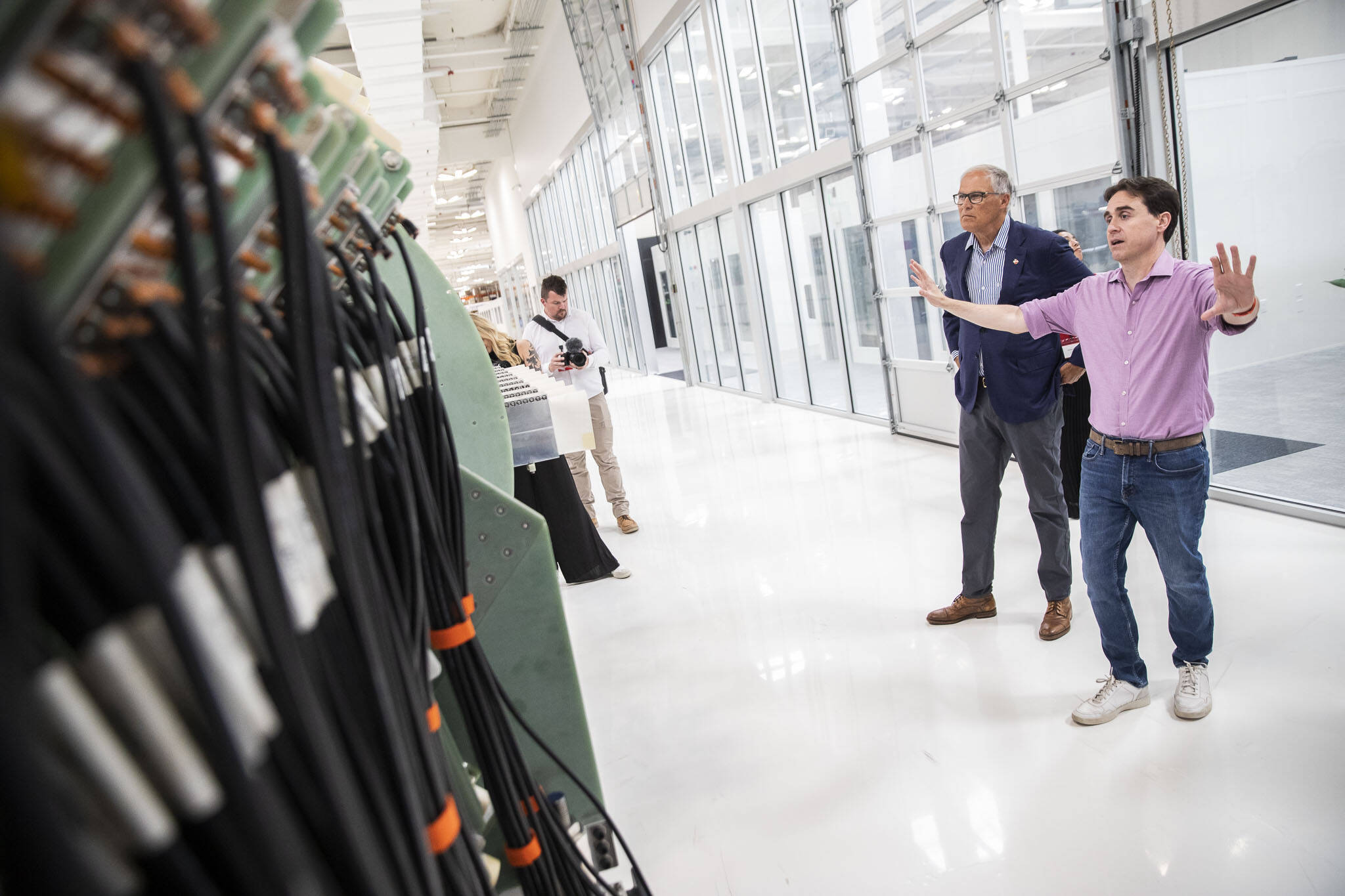EVERETT — The state Department of Health has granted Helion, an Everett-based company, a license that will enable it to use radioactive byproduct materials to operate its fusion machine.
Helion is developing a system to generate electricity from fusion, a potential zero-carbon energy source.
The permit, known as a Large Broad Scope license, is similar to those held by hospitals and universities. In hospital settings, small amounts of radioactive substances are used to detect diseases with the aid of imaging equipment.
The material will enable Helion to operate Polaris, the seventh-generation fusion generator the company will use to demonstrate the production of electricity.
“First and foremost, our emphasis on safety has always been about ensuring the well-being of our team and our community,” CEO David Kirtley said in a statement.
“By securing this Large Broad Scope license, we’ve taken another important step toward bringing safe, clean, virtually unlimited energy to the world,” Kirtley continued.
Unlike existing nuclear energy plants that produce electricity by splitting atoms, fusion produces energy by smashing atoms together at extremely high temperatures.
And unlike fission, fusion plants don’t melt down and don’t produce significant amounts of radioactive waste.
Since 2018, Helion said it has coordinated with the Department of Health to ensure its fusion technology meets all safety and regulatory requirements.
“Safely creating cleaner energy is fundamental for a healthy future, and fusion is the ultimate clean energy source,” Jill Wood, director of the agency’s Office of Radiation Protection, said in a statement.
“We’ve worked with Helion for several years now to ensure their operations meet our stringent safety standards,” Wood added. “This license reflects the company’s rigorous attention to safety and encourages emerging commercial fusion industries here in Washington.”
Last year, the U.S. Nuclear Regulatory Commission voted unanimously to regulate the fusion industry differently than the nuclear fission industry, due to the differences in risk level.
In July, this decision was codified in the ADVANCE Act, signed by President Joe Biden.
The decision allows the state to participate in the regulatory process with the state Department of Health overseeing Helion’s fusion generators.
Founded in 2013, Helion Energy moved from Redmond to a 150,000-square-foot warehouse near Paine Field two years ago. Since then, its workforce has grown from 70 employees to 300.
Looking ahead, Helion is preparing to launch the world’s first fusion power plant in Washington by 2028.
Janice Podsada; jpodsada@heraldnet.com; 425-339-3097; Twitter: @JanicePods.
Talk to us
> Give us your news tips.
> Send us a letter to the editor.
> More Herald contact information.

























